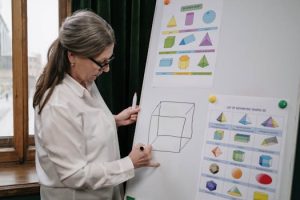The Role of Debate in Developing Critical Thinking Skills
In today’s fast-paced and constantly evolving world, critical thinking skills have never been more important. With the influx of information and opinions flooding our screens, it is vital for individuals to be able to analyze, evaluate, and question the validity and reliability of what they consume. These skills are not only necessary for academic success, but also for success in the workplace and in navigating everyday life. One effective method for developing critical thinking skills is through debate. In this article, we will explore the role of debate in developing critical thinking skills and why it is a valuable tool for individuals of all ages.
The Importance of Critical Thinking Skills
Before delving into the role of debate, it is important to understand the significance of critical thinking skills. Essentially, critical thinking involves the ability to think rationally, objectively, and independently. It requires individuals to question assumptions, evaluate evidence, and consider alternative perspectives. These skills enable individuals to make sound decisions, solve problems, and form personal opinions based on logical reasoning rather than blindly accepting information.
The Benefits of Debate for Developing Critical Thinking Skills
One of the main reasons why debate is an effective tool for developing critical thinking skills is because it encourages individuals to analyze and critically evaluate arguments. In a debate, participants must research and gather evidence to support their stance on a particular topic. This involves sifting through various sources and determining the reliability and validity of the information presented. By doing so, individuals are forced to think critically about the information they encounter and evaluate its credibility before using it in their argument.
In addition, debate also promotes active listening and open-mindedness. During a debate, individuals must listen to and consider their opponent’s arguments in order to construct a rebuttal. This process requires individuals to be open to other perspectives and challenge their own beliefs. By doing so, individuals are able to gain a deeper understanding of different viewpoints and ultimately develop stronger critical thinking skills.
Debate in Education
Beyond its role in developing critical thinking skills, debate also has a significant impact in the education system. In fact, many schools and universities have debate teams and programs to encourage students to engage in critical thinking and improve their communication skills. Through debate, students are exposed to a variety of topics and learn to form arguments based on evidence and logic rather than personal biases or opinions. This not only helps them academically, but also prepares them for real-world situations where critical thinking is essential.
Debate in Everyday Life
Moreover, the benefits of debate are not limited to the academic setting. In our day-to-day lives, we are constantly bombarded with conflicting opinions and information, making it crucial to be able to think critically and discern the truth. By actively participating in debates, individuals learn to question information, evaluate its credibility, and form informed opinions. This leads to more effective and rational decision-making in all aspects of life, from personal relationships to societal issues.
Conclusion
In conclusion, the role of debate in developing critical thinking skills cannot be overstated. It not only helps individuals to think more critically and analytically, but also encourages open-mindedness, active listening, and effective communication. Whether in the classroom or in everyday life, incorporating debate as a tool for developing critical thinking skills is invaluable. So the next time you find yourself in a debate, embrace it as an opportunity to sharpen your critical thinking skills and engage in meaningful discourse.







